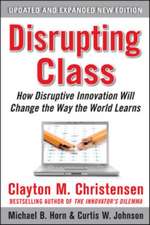Critical Appraisal of Physical Science as a Human Enterprise: Dynamics of Scientific Progress: Contemporary Trends and Issues in Science Education, cartea 36
Autor Mansoor Niazen Limba Engleză Paperback – 28 oct 2010
| Toate formatele și edițiile | Preț | Express |
|---|---|---|
| Paperback (1) | 778.13 lei 6-8 săpt. | |
| SPRINGER NETHERLANDS – 28 oct 2010 | 778.13 lei 6-8 săpt. | |
| Hardback (1) | 784.13 lei 6-8 săpt. | |
| SPRINGER NETHERLANDS – 3 feb 2009 | 784.13 lei 6-8 săpt. |
Din seria Contemporary Trends and Issues in Science Education
- 20%
 Preț: 568.91 lei
Preț: 568.91 lei - 20%
 Preț: 814.78 lei
Preț: 814.78 lei - 18%
 Preț: 951.77 lei
Preț: 951.77 lei - 15%
 Preț: 638.43 lei
Preț: 638.43 lei - 15%
 Preț: 636.80 lei
Preț: 636.80 lei - 15%
 Preț: 628.08 lei
Preț: 628.08 lei - 15%
 Preț: 637.46 lei
Preț: 637.46 lei - 18%
 Preț: 951.29 lei
Preț: 951.29 lei - 15%
 Preț: 644.95 lei
Preț: 644.95 lei - 18%
 Preț: 951.91 lei
Preț: 951.91 lei - 18%
 Preț: 1218.66 lei
Preț: 1218.66 lei - 18%
 Preț: 953.65 lei
Preț: 953.65 lei - 15%
 Preț: 641.71 lei
Preț: 641.71 lei - 15%
 Preț: 697.15 lei
Preț: 697.15 lei - 15%
 Preț: 644.18 lei
Preț: 644.18 lei - 15%
 Preț: 640.55 lei
Preț: 640.55 lei - 15%
 Preț: 640.06 lei
Preț: 640.06 lei - 15%
 Preț: 639.08 lei
Preț: 639.08 lei - 18%
 Preț: 1388.68 lei
Preț: 1388.68 lei -
 Preț: 389.31 lei
Preț: 389.31 lei - 15%
 Preț: 465.66 lei
Preț: 465.66 lei - 18%
 Preț: 1832.08 lei
Preț: 1832.08 lei - 15%
 Preț: 641.85 lei
Preț: 641.85 lei -
 Preț: 398.15 lei
Preț: 398.15 lei - 15%
 Preț: 644.18 lei
Preț: 644.18 lei - 18%
 Preț: 945.47 lei
Preț: 945.47 lei - 15%
 Preț: 644.30 lei
Preț: 644.30 lei - 18%
 Preț: 1215.04 lei
Preț: 1215.04 lei
Preț: 778.13 lei
Preț vechi: 948.95 lei
-18% Nou
Puncte Express: 1167
Preț estimativ în valută:
148.94€ • 161.84$ • 125.19£
148.94€ • 161.84$ • 125.19£
Carte tipărită la comandă
Livrare economică 21 aprilie-05 mai
Preluare comenzi: 021 569.72.76
Specificații
ISBN-13: 9789048181728
ISBN-10: 9048181720
Pagini: 232
Ilustrații: XIV, 216 p.
Dimensiuni: 155 x 235 x 12 mm
Greutate: 0.33 kg
Ediția:Softcover reprint of hardcover 1st ed. 2009
Editura: SPRINGER NETHERLANDS
Colecția Springer
Seria Contemporary Trends and Issues in Science Education
Locul publicării:Dordrecht, Netherlands
ISBN-10: 9048181720
Pagini: 232
Ilustrații: XIV, 216 p.
Dimensiuni: 155 x 235 x 12 mm
Greutate: 0.33 kg
Ediția:Softcover reprint of hardcover 1st ed. 2009
Editura: SPRINGER NETHERLANDS
Colecția Springer
Seria Contemporary Trends and Issues in Science Education
Locul publicării:Dordrecht, Netherlands
Public țintă
ResearchCuprins
Quantitative Imperative Versus the Imperative of Presuppositions.- Understanding Scientific Progress: From Duhem to Lakatos.- Kinetic Theory: Maxwell's Presuppositions.- Periodic Table of the Chemical Elements: From Mendeleev to Moseley.- Foundations of Modern Atomic Theory: Thomson, Rutherford, and Bohr.- Determination of the Elementary Electrical Charge: Millikan and Ehrenhaft.- Paradox of the Photoelectric Effect: Einstein and Millikan.- Bending of Light in the 1919 Eclipse Experiments: Einstein and Eddington.- Lewis's Covalent Bond: From Transfer of Electrons to Sharing of Electrons.- Quantum Mechanics: From Bohr to Bohm.- Wave–Particle Duality: De Broglie, Einstein, and Schrödinger.- Searching for Quarks: Perl's Philosophy of Speculative Experiments.- Conclusion: Inductive Method as a Chimera.
Recenzii
From the reviews:
“The book is organized in 14 chapters and includes references, an author index and a subject index. … The book does an excellent job in brining to the foreground the complexity that surrounds the development of ideas in science. … Overall, the book is a valuable contribution in illustrating a face of science that is often ignored. … The book will be useful for academics, researchers and students in history, philosophy and education of science.” (Sibel Erduran, Science & Education, June, 2010)
“This 14-chapter book devotes 10 chapters to historical episodes of scientific discovery and theory development in the physical sciences. … for students of history and philosophy of science (HPS) and science education, this volume reports on important physical science episodes in the application of HPS to science education. … Niaz’s monograph is a good source for gaining insights into how history of science influenced philosophy of science.” (Richard A. Duschl,Studies in Science Education, Vol. 47 (1), March, 2011)
“The book is organized in 14 chapters and includes references, an author index and a subject index. … The book does an excellent job in brining to the foreground the complexity that surrounds the development of ideas in science. … Overall, the book is a valuable contribution in illustrating a face of science that is often ignored. … The book will be useful for academics, researchers and students in history, philosophy and education of science.” (Sibel Erduran, Science & Education, June, 2010)
“This 14-chapter book devotes 10 chapters to historical episodes of scientific discovery and theory development in the physical sciences. … for students of history and philosophy of science (HPS) and science education, this volume reports on important physical science episodes in the application of HPS to science education. … Niaz’s monograph is a good source for gaining insights into how history of science influenced philosophy of science.” (Richard A. Duschl,Studies in Science Education, Vol. 47 (1), March, 2011)
Textul de pe ultima copertă
The objective of this book is to reconstruct historical episodes and experiments that have been important in scientific progress, and to explore the role played by controversies and rivalries among scientists. Although progress in science has been replete with controversies, scientists themselves either ignore or simply downplay their role. Such presentations lack the appreciation of the dynamics of ‘science-in-the-making’. This book provides methodological guidelines - based on a historical perspective of philosophy of science- that facilitate an understanding of historical episodes beyond that of inductive generalizations. These guidelines suggest that progress in science is not merely based on the accumulation of experimental data, but rather dependent on the creative imagination of the scientific community. This work shows that interpretation of experimental data is difficult and inevitably leads to alternative models/theories thus facilitating the understanding of science as a human enterprise.
Caracteristici
Presents historical reconstructions that are very different from textbook presentations Includes a wide range of historical episodes covering almost 300 years Provides guidelines for students, teachers and researchers for further research Understands science as a human enterprise








